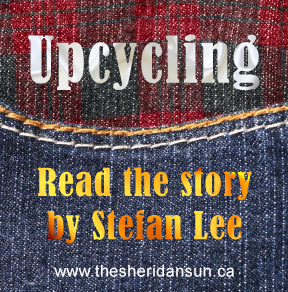First it wrecked your life, now it reviews it
STORY BY MARKO WOLOSHYN
With the advent of a new year, the online world has become inundated with reflections.
People are taking to Facebook to share their own year-end retrospectives, highlighting the ups and downs of their year, but when does sharing become over sharing?
Matt Hearn, a Media Arts student, says that Facebook’s year in review app is the problem.
The app picks out the Top 20 moments – a collection of posts, events and pictures – from a profile and offers the user the ability to post it as their “year in review”.
“Facebook tells us that we should feel like celebrities,” says Hearn. “Everyone has good months and bad months and you don’t really need to share that. The fact that Facebook is pushing you to share that means that you probably weren’t going to share it anyway.”
Liana Palmerio-McIvor, a therapist working on a presentation entitled “Technophilia”, says that a even a self-published year-end recap on Facebook can be a productive and positive experience.
“It gives people an opportunity to reflect on what it is that they liked about the things that they accomplished, and what they didn’t, and perhaps it even helps them come up with new goals for the new year,” she says.
Although Palmerio-McIvor warns that a compulsive overuse of Facebook can hinder real-life interactions with other people, she says sharing your accomplishments and failures on Facebook is a great way for people to feel connected.
“As human beings, we need to know that we exist. We need to know that we matter. And Facebook and social media is a way to do that for some of us. And it’s easy,” says Palmerio-McIvor.
Others are wearier of Facebook, and the possibility of over sharing.
Andrew Park, a Media Arts student, says he favours Facebook as more of an interactive experience.
“It’s a social network, it’s meant to be social, not just a journal of your daily life,” says Park.
Park says he primarily uses Facebook to share articles and videos, and he occasionally writes about his experiences, but for the sake of commentary.
“I don’t like to post about myself, but about my personal interests,” says Park. “I find that I use (Facebook) to criticize a lot of things, and people just agree or they don’t. They interact.”
Palmerio-McIvor encourages a less-is-more philosophy when it comes to social media, and stresses to be careful of what you post, as the Internet is permanent.




